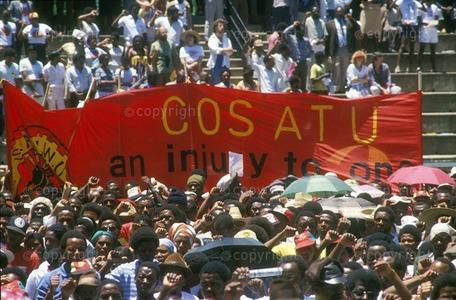Ukraine: Regime fall followed by fresh chaos

Police clash with Maidan protesters, January 19, 2014.
By Tony Iltis
Review: Noam Chomsky's weak spot on political power

Power Systems
By Noam Chomsky
`Foro Social Latinamericano', February 2014 issue: Green Left Weekly's Spanish-language supplement

February 23, 2014 – Links International Journal of Socialist Renewal – Providing facts and anal
For more on Venezuela, click HERE.
By the Socialist Party of Malaysia/Parti Sosialis Malaysia (PSM)
The life of African-American socialist Hubert Harrison: a discussion with Jeffrey B. Perry
Doug Enaa Greene in discussion with historian Jeffrey B. Perry (above).
Syria: Assad regime responsible for rise in religious sectarianism

Alawite supporters of the Assad regime.



